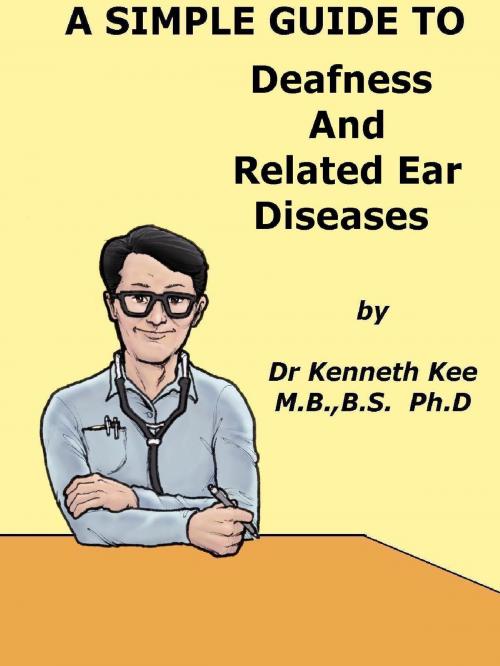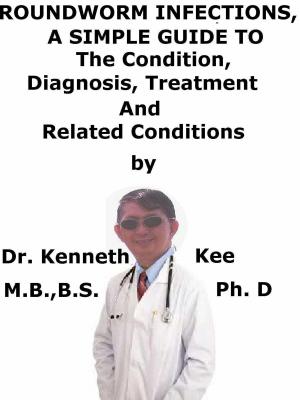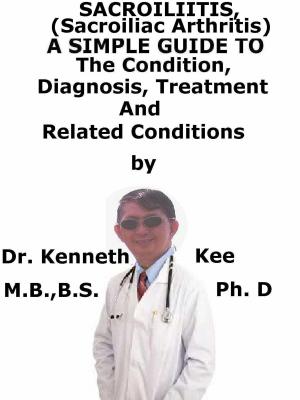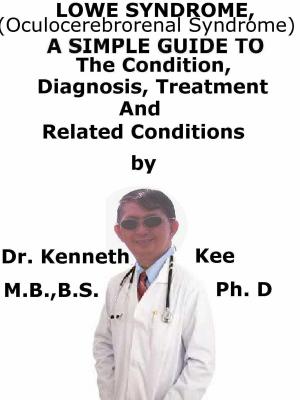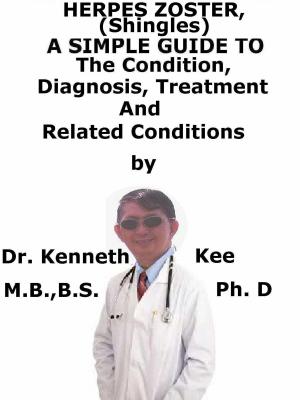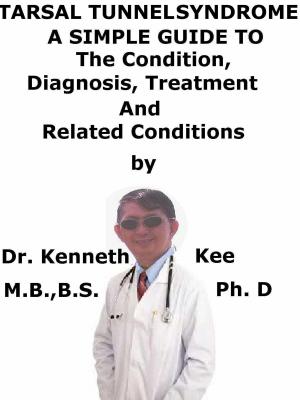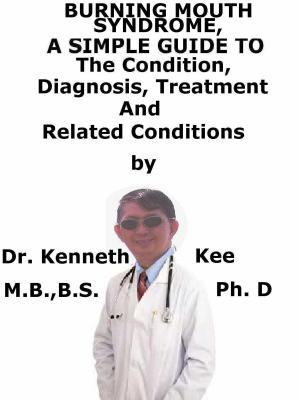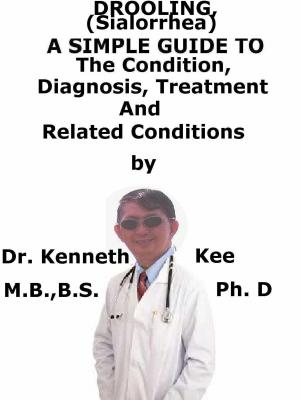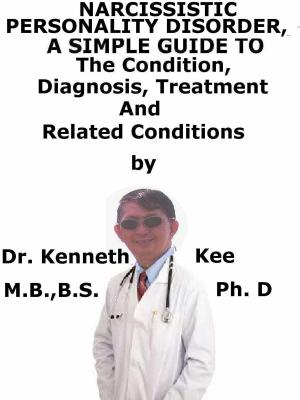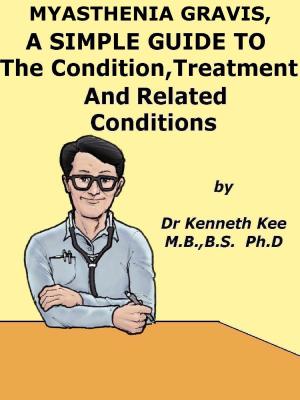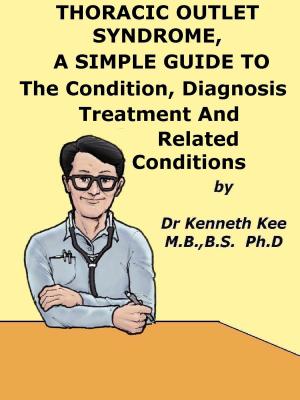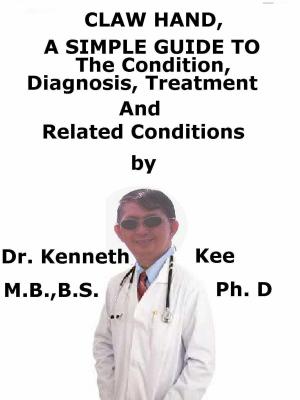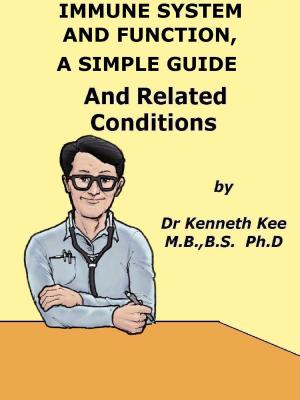A Simple Guide to Deafness and Related Ear Diseases
Nonfiction, Health & Well Being, Health, Ailments & Diseases, Hearing, Health Care Issues| Author: | Kenneth Kee | ISBN: | 9781301051403 |
| Publisher: | Kenneth Kee | Publication: | November 14, 2012 |
| Imprint: | Smashwords Edition | Language: | English |
| Author: | Kenneth Kee |
| ISBN: | 9781301051403 |
| Publisher: | Kenneth Kee |
| Publication: | November 14, 2012 |
| Imprint: | Smashwords Edition |
| Language: | English |
What is Deafness?
Deafness is the inability to hear.
What are the causes of Deafness?
The causes of Deafness are:
A. Conductive hearing loss
Here sound waves cannot be transmitted from the external environment to the cochlea.
The problem may lie in
- the external ear canal
a. obstruction caused by wax
b. obstruction caused by foreign body
c. obstruction caused by infection (otitis externa)
d. obstruction caused by ear polyps
- eardrum
a. perforation caused by trauma
b. perforation caused by infection
c. scarred eardrum from injury or infection
- middle ear bones
a. dislocation of the bones from injury or infection
b. damage to the bones from injury or infection
c. fixed bones or osteosclerosis (hardening of the bones from aging)
- middle ear infection
infection of the middle ear occurs with fluid in the middle ear cavity preventing sound from passing through
B. Sensorineural Hearing Loss
a. damage to hearing organ or cochlea which send nerve impulse to the hearing nerve and on to the brain
b. damage to the hearing nerve (auditory nerve)from loud sounds, infection or injury
Common causes of hearing loss are:
- aging (presbycusis)
2, acute or chronic exposure to loud noise can cause damage to sensory cells of cochlea
-
infection of the inner ear by viruses and bacteria such as mumps, measles or influenza
-
Meniere's disease - a disease with tinnitus, deafness and dizziness
-
Acoustic neuroma - tumor of the vestibular nerve which lies near to the auditory nerve and affects its function
-
Ototoxic drugs which can damage the nerves involved in hearing or sensory cells in the cochlea such as:
a. antibiotics especially gentamycin and vancomycin
b. diuretics such as frusemide
c. chemotherapy drugs
What are the symptoms of Deafness?
- Deafness is a lack of hearing.
The hearing loss is gradual or sudden and can affect one or both ears.
There is difficulty in holding a normal conversation in a noisy environment.
People may complain the affected person does not respond when called or speak louder than usual
-
tinnitus (ringing in the ear) may be present
-
vertigo (spinning sensation) may be associated with it
-
pain and discharge from ear is associated with ear infections
How is Deafness diagnosed?
Diagnosis:
-
complete history, ENT examination
-
examination of ear canal and eardrum
-
endoscopy examination of nose and nasopharynx
-
neurological examination
-
hearing test (audiogram) can confirm the presence and severity and type of hearing loss
-
Tympanogram may be performed to detect problems of eardrum and middle ear.
-
X-rays, CT scan or MRI may used to exclude acoustic neuroma or brain tumors.
What is the treatment of Deafness?
Treatment
Medical treatment depends on the underlying problem.
- Removal of wax and foreign body in the ear
Ear polyps can be dissolved away with medicines.
-
Antibiotics oral and topical may be necessary in severe external ear infections.
-
In the case of eardrum perforation, once the underlying infection is cleared and the perforation still do not close after 3 months, then surgical repair of the perforation may be needed.
-
If the cause of deafness is due to medication, then the medication should be stopped or changed.
-
If the cause is prebycusis (due to aging) no medical treatment is needed.
The deaf person is assessed to see whether hearing aids will help.
TABLE OF CONTENT
Chapter 1 Deafness
Chapter 2 Chronic Suppurative Otitis Media
Chapter 3 Ear Drum Perforation
Chapter 4 Ear Infections
Chapter 5 Acoustic Neuroma
Chapter 6 Menieres Disease
Chapter 7 Ear injury
What is Deafness?
Deafness is the inability to hear.
What are the causes of Deafness?
The causes of Deafness are:
A. Conductive hearing loss
Here sound waves cannot be transmitted from the external environment to the cochlea.
The problem may lie in
- the external ear canal
a. obstruction caused by wax
b. obstruction caused by foreign body
c. obstruction caused by infection (otitis externa)
d. obstruction caused by ear polyps
- eardrum
a. perforation caused by trauma
b. perforation caused by infection
c. scarred eardrum from injury or infection
- middle ear bones
a. dislocation of the bones from injury or infection
b. damage to the bones from injury or infection
c. fixed bones or osteosclerosis (hardening of the bones from aging)
- middle ear infection
infection of the middle ear occurs with fluid in the middle ear cavity preventing sound from passing through
B. Sensorineural Hearing Loss
a. damage to hearing organ or cochlea which send nerve impulse to the hearing nerve and on to the brain
b. damage to the hearing nerve (auditory nerve)from loud sounds, infection or injury
Common causes of hearing loss are:
- aging (presbycusis)
2, acute or chronic exposure to loud noise can cause damage to sensory cells of cochlea
-
infection of the inner ear by viruses and bacteria such as mumps, measles or influenza
-
Meniere's disease - a disease with tinnitus, deafness and dizziness
-
Acoustic neuroma - tumor of the vestibular nerve which lies near to the auditory nerve and affects its function
-
Ototoxic drugs which can damage the nerves involved in hearing or sensory cells in the cochlea such as:
a. antibiotics especially gentamycin and vancomycin
b. diuretics such as frusemide
c. chemotherapy drugs
What are the symptoms of Deafness?
- Deafness is a lack of hearing.
The hearing loss is gradual or sudden and can affect one or both ears.
There is difficulty in holding a normal conversation in a noisy environment.
People may complain the affected person does not respond when called or speak louder than usual
-
tinnitus (ringing in the ear) may be present
-
vertigo (spinning sensation) may be associated with it
-
pain and discharge from ear is associated with ear infections
How is Deafness diagnosed?
Diagnosis:
-
complete history, ENT examination
-
examination of ear canal and eardrum
-
endoscopy examination of nose and nasopharynx
-
neurological examination
-
hearing test (audiogram) can confirm the presence and severity and type of hearing loss
-
Tympanogram may be performed to detect problems of eardrum and middle ear.
-
X-rays, CT scan or MRI may used to exclude acoustic neuroma or brain tumors.
What is the treatment of Deafness?
Treatment
Medical treatment depends on the underlying problem.
- Removal of wax and foreign body in the ear
Ear polyps can be dissolved away with medicines.
-
Antibiotics oral and topical may be necessary in severe external ear infections.
-
In the case of eardrum perforation, once the underlying infection is cleared and the perforation still do not close after 3 months, then surgical repair of the perforation may be needed.
-
If the cause of deafness is due to medication, then the medication should be stopped or changed.
-
If the cause is prebycusis (due to aging) no medical treatment is needed.
The deaf person is assessed to see whether hearing aids will help.
TABLE OF CONTENT
Chapter 1 Deafness
Chapter 2 Chronic Suppurative Otitis Media
Chapter 3 Ear Drum Perforation
Chapter 4 Ear Infections
Chapter 5 Acoustic Neuroma
Chapter 6 Menieres Disease
Chapter 7 Ear injury
